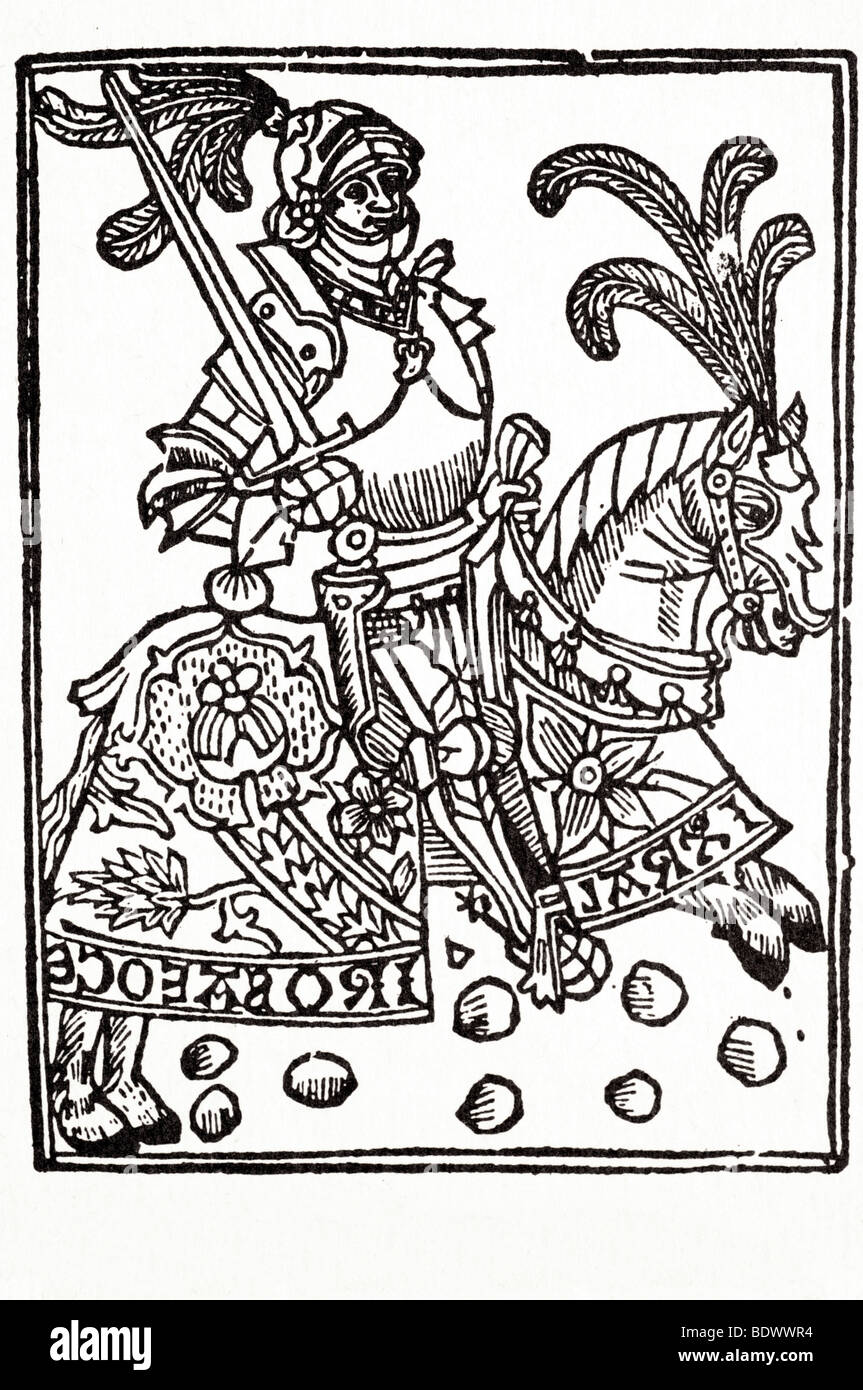r pynson 1526 4 june chaucer geoffry canterbury tales a knight with four plumes a sword in his right hand riding a horse with fo

Image details
Contributor:
19th era 2 / Alamy Stock PhotoImage ID:
BDWWR4File size:
48 MB (2.1 MB Compressed download)Releases:
Model - no | Property - noDo I need a release?Dimensions:
3338 x 5025 px | 28.3 x 42.5 cm | 11.1 x 16.8 inches | 300dpiDate taken:
1526More information:
Richard Pynson (1448 in Normandy – 1529) was one of the first printers of English books. The 500 books he printed were influential in the standardisation of the English language. Pynson was born in 1448 in Normandy and may have been a glover and/or a pouchmaker before he turned to printing It is possible that he is identical with one Richard Pynson who was enrolled as a student in Paris in 1464. He is also mentioned as being a bookbinder, although he probably did not bind the books himself. It has been suggested that Pynson at one time worked as an assistant to William Caxton – whom he once called "my worshipful master" – but this is now considered highly unlikely. Pynson began his printing career not after 1492, the year in which he printed Alexander Grammaticus's Doctrinale, his first dated book. He had probably learned his trade from Guillaume de Talleur, a printer in Rouen, whom he charged with printing at least two books in the early 1490s. It is likely that he took over William de Machlinia's premises after de Machlinia's death; it is also possible that Julian Notary in turn took over Pynson's vacated place in 1501. During the first years, he worked in St Clement Danes just outside Temple Bar, but he moved inside Temple Bar in 1501, possibly because of xenophobic riots but perhaps simply "[...] to be closer to the book trade, most of the leading men having their shops in the neighbourhood of St Paul's Cathedral." Pynson became King's Printer to Henry VII (and subsequently to Henry VIII) in 1506, an office that carried not only great prestige but also an annuary of two pounds, later raised to four pounds. Since this was a prestigious lifetime position, it is not surprising that he was naturalized in 1513. The output of Pynson's press was varied but limited in scope. He was recognized as an expert at printing law texts (e.g., statutes of the King) and also printed many books of a religious nature like Books of Hours or Missals. He is noted for being one of the